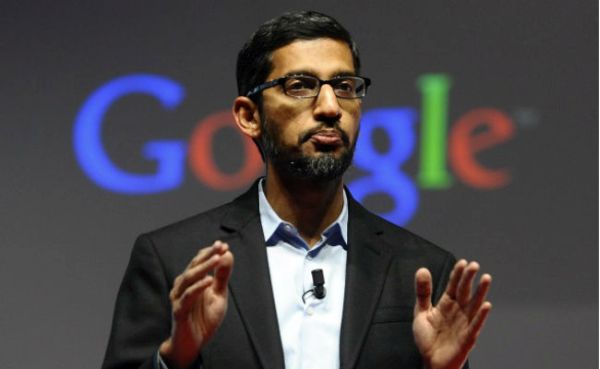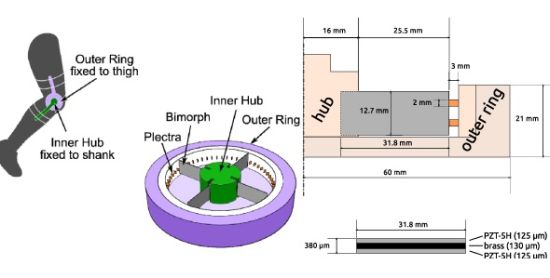Artificial Intelligence has been creating both chaos and order as it rocks the world from one side to another. With some people considering AI to be the cause of the end of the world, we have yet another school of thought that believes that the world can reach new highs with AI as the engine. Because we have no eyes into the future, we can only hope that AI will be anything but the reason for our doom.
Very recently, Google’s CEO, Sundar Pichai predicted that the world of computers being seen as physical devices was coming to an end as another world rose at the background. His predictions came in the form of a letter that has been posted on Google’s official blog. It was a tradition at Google that every year, Founders Larry Page and Sergey Brin shared a letter which outlined the company’s vision and progress. This year we saw a refreshing change in the usual trend as Pichai took over to draft his thoughts into a letter.
Excerpts from the letter

In his letter, Pichai stressed on how AI was getting stronger and the ascendancy of AI permeated a huge part of the letter. There is no doubt that AI has gained grounds across the industry in the recent years, but the way Google sees the future of AI is something striking about it for sure. It does not mean that Google is going to turn into an AI research house very soon, but the future holds a more promising role for AI which may soon be embedded in more of Google’s projects and applications. Just like Pichai wrote in the letter, “Over time, the computer itself – whatever its form factor – will be an intelligent assistant helping you through your day”.
The section of the letter that talked about AI, explains how the technology plays a pivotal role in search and assistance which continues to remain at Google’s core. The importance of AI seems to be growing so much that in February, Pichai tapped one of Google’s best AI researchers, John Giannandrea, to lead the search team. Pichai talks about how AI allows users to search for information using their voice, the translation of a web page from one language to another, the filtration of spam from a user’s inbox as well as bringing up results after analysing an image.
In the section of the letter that he discusses powerful computing platforms, he talks about how the concept of ‘device’ would soon blur as the world steps into a world powered by AI. Google’s AI investments are trying to create products which assist users without having to type into the device. AI has a lot to explore, we can achieve inexplicable things with machine learning and technology can really take a new turn.
How luminaries perceive Artificial Intelligence

Image Source : I.Ndtvimg.Com
AI has been scrutinized in many ways by luminaries in the industry who feel that it may lead to the downfall of our race. However, many researchers see AI technology to be one of the best things that science and technology has brought to the world. Analysts have been predicting that the world is reaching a stage where devices are at its peak and this was proved somewhat right when Apple saw a sudden fall in the number of iPhones it sold in the first quarter of 2016. This is the first time when Apple noticed a fall in its sales in 13 years. At the same time, Apple’s revenue from its store, Apple music, Apple Pay and iCloud generated revenue of almost $6 billion which has gone up 20 percent from last year.
If Pichai has reason to believe that devices are soon going to ‘fade away’, then Google is not the only company anticipating this. Companies like Apple, Microsoft and IBM have been preparing themselves for a world that is getting ready for services which work seamlessly with the help of computers – not the bulky kind that may obstruct your daily routine, but those that quietly work in the background so that you can carry out your daily activities without even feeling their presence.
The progressive way, in which technology has been moving, we have less doubt about a world like this. We already have robots that are trying to work their way into our homes as equipment of utility. When Google’s DeepMind computer won the Chinese game Go against Go champion Lee Sedol, the company enjoyed the way its AI projects were headed.
AI will always require human instruction

One thing that we must understand about AI though, is that it will continue to remain a technology that needs our guidance to work properly. We are yet to anticipate a stage where AI can do things on their own and supersede what humankind can do. We are looking at a world which uses AI to enhance our standards of living and to add luxury to our lives, instead of one that is controlled by AI.
We have recently heard about the amount of scrutiny AI went through when physicist Stephen Hawking and Tesla CEO Elon Musk provoked a wave of fear among the people by naming AI as the thing that could spell doom for the world. They talked about how AI may take over humans very soon. On the other hand, we have had many researchers and tech enthusiasts who found such claims to be insubstantial because computers, at the end of the day, are still controlled by us and have an On and Off switch that can make a huge difference in how they work for us.
While this discussion could go on, there is a lot of substance in Pichai’s thoughts about technology taking such a turn that computers may not be limited to screens any longer. Instead they may become more formless and may be presented in almost all our devices without being noticed. With the Internet of things being a recent hot topic, we have every reason to believe that the internet has begun exploring new horizons where technology should not limit itself to simple computers or mobile screens.
However, just as highly Google regards its AI projects and the way AI may be transforming the face of Earth in future, it continues to invest substantially in the hardware section as well. Google announced that it had created a new device which will be led by Rick Osterloh who is the former President of Motorola. So while we await a world where computer screens become a thing of old, Google continues to invest in the creation of hardware that can help us enjoy the many fruits of technology.
As the letter sees a break in the traditions, Pichai breathes some fresh air in the visions and goals of Google as it tries to reach new heights and explore new horizons.


